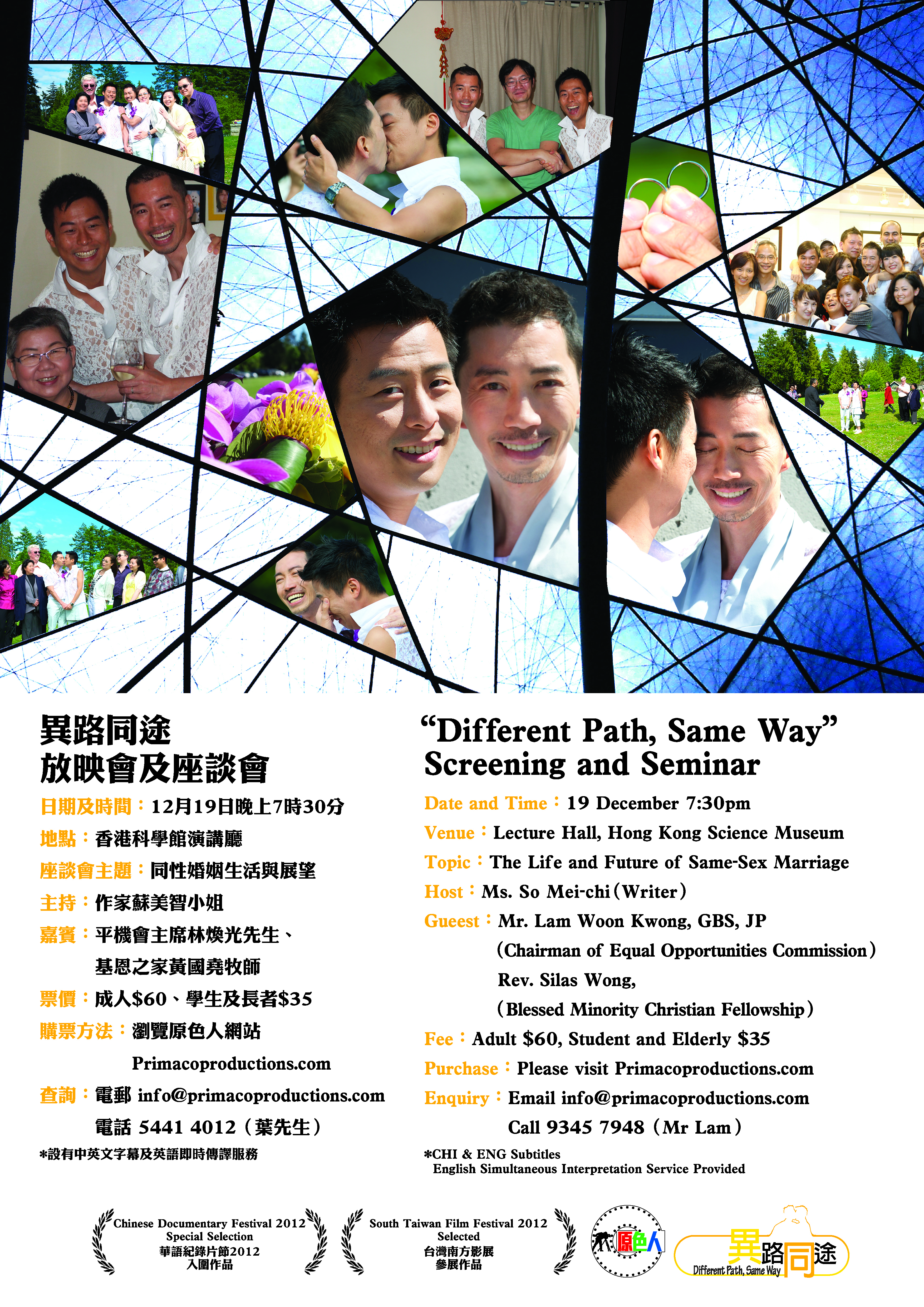Recently I explained to a good friend of mine why I consider erotic love a basic human necessity, and why I dare to say that without it, life is incomplete. While one could argue with me by undoing the notion of love with a genealogy or archaeology of the concept, I say, in the widest sense of the term, from time immemorial to yesterday, erotic love have inspired great works and been the unfailing source of all sorts of sublimated activities. Different social formations or configurations have tried to codify, celebrate, contain, manage, institutionalize, fantasize, ritualize, ridicule erotic love, only to have been proven that no one institution or tradition can ever encapsulate the entirety of its diversity and vicissitudes that characterize humanity itself.
In this context, Guy and Henry’s story is not that out of extraordinary. Inheriting some Victorian mores from the colonial era, as well as combining imported fundamentalist fervor from North America and rigid Chinese conservatism on gender and sexuality, Hong Kong is such a postmodern emporium in which oppression of its gender and sexual minorities could de deterritorialized or outsourced. In casual conversations with my friends, I maintain that among the three Chinese-speaking cosmopolitans, Shanghai, Hong Kong, and Taipei, Hong Kong is probably the most conservative when it comes to sexuality. Guy and Henry’s everyday solution to a millennial problem is categorically simple. Well, if they have what it got to maintain a committed relationship and establish a loving household, and we won’t let them, then they will just take matters in their own hands, and transport themselves into a jurisdiction that allow such union.
The Hong Kong gay couple could be living in the wrong time or in the wrong place. But the latter does not have to be. The right place happens to be British Columbia, Canada, where same-sex marriage became a fact of life in 2003 and later the law nationwide in 2005. For Guy, who grew up in the neighboring Alberta, his wedding could be viewed as a homecoming. For Henry, it was the first time he experienced his full personhood regardless of his sexual orientation, and by virtue of this new bond, could equally embark on a path to articulate this personhood into a new citizenship if one day he chooses to. Straight and gay Canadians alike, they should all acquire the proper knowledge of how to make love, safely and effectively, in a canoe. Without lifejackets.
Directed by veteran filmmaker Yung Chiman, a Hong Kong native trained at the Beijing Academy of Film, this documentary feature is his first venture into the LGBT topics. In addition to capturing the Guy and Henry wedding and its aftermath as all wedding videographers obligingly do, Yung also incorporates interview footages of prominent community members and scholars who discuss various dimensions and repercussions of same-sex marriage and family in the territory. In Guy and Henry’s case, an understanding and supportive widowed mother, who, like many diasporic Chinese, is no stranger to crossing national and cultural boundaries, can only help illustrate the benefits that marriage brings to everybody involved.
The special screening of “Different Path, Same Way,” followed by a seminar on the future of same-sex marriage attended by Ms. Chi-mei So, Writer, The Hon. Woon-kwong Lam, Convener of the Executive Council and Chair of the Equal Opportunity Commission, Rev. Silas Wong, Pastor at Blessed Minority Christian Fellowship, Dr. Petula Ho, Associate Professor from the University of Hong Kong, The Hon. Chi-Chuen Chan, Legislative Councilor, the director and the cast, will be held on Wednesday, December 19, 2012 at 7:30pm in the Hong Kong Science Museum Auditorium in Tsim Sha Tsui. Simultaneous interpretation in English and Mandarin will be offered. Ticketing details can be found at Primaco Productions.
